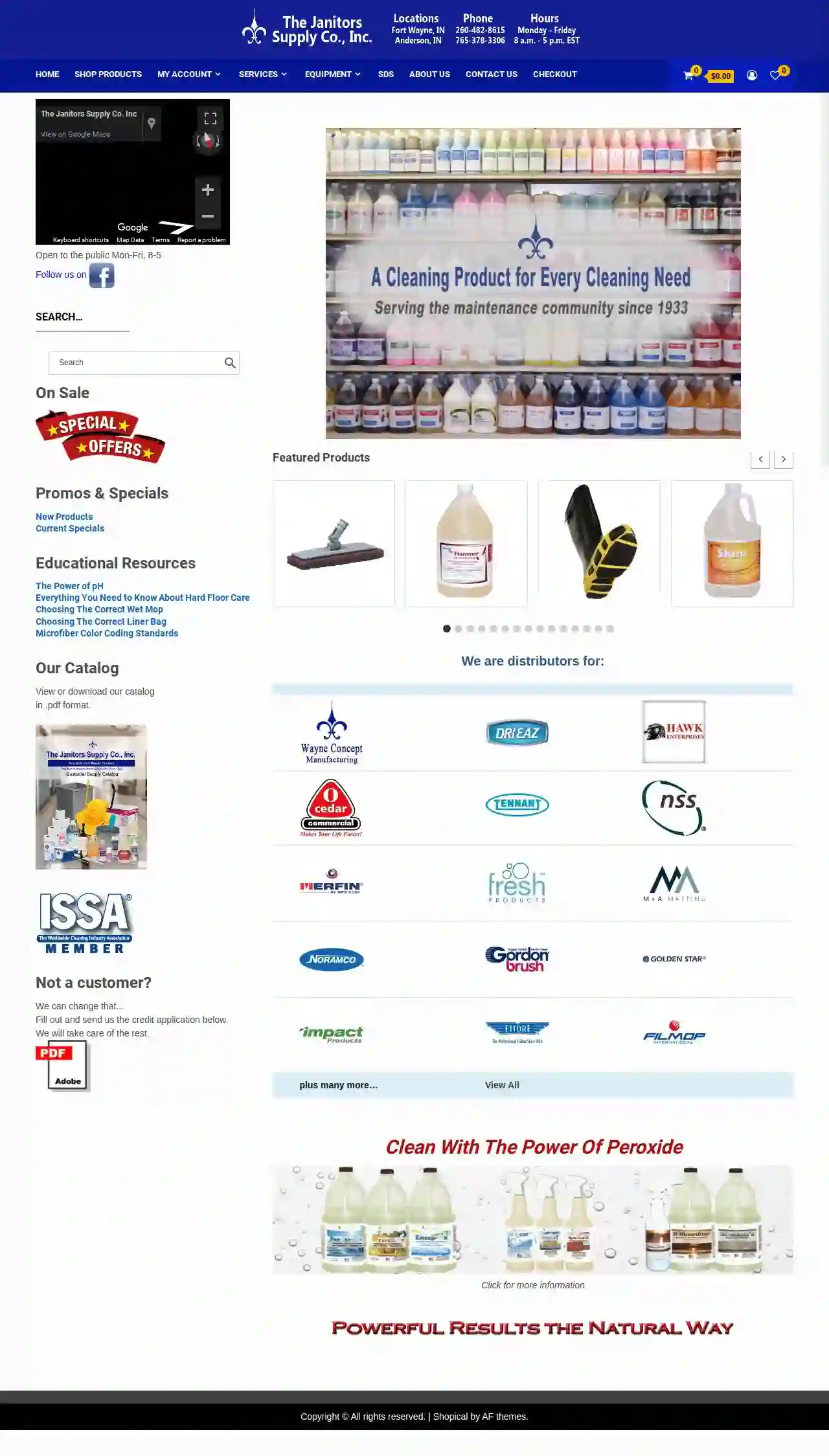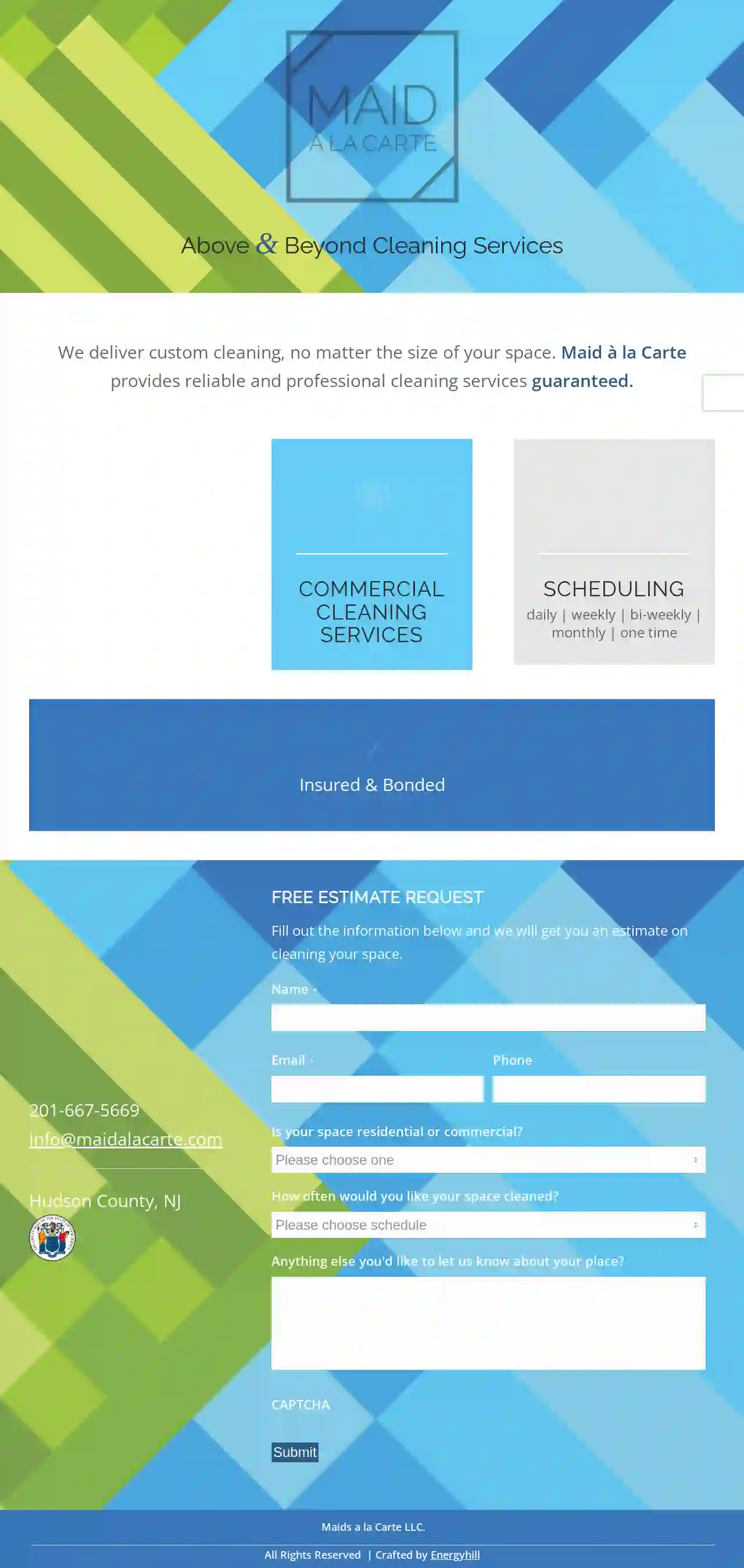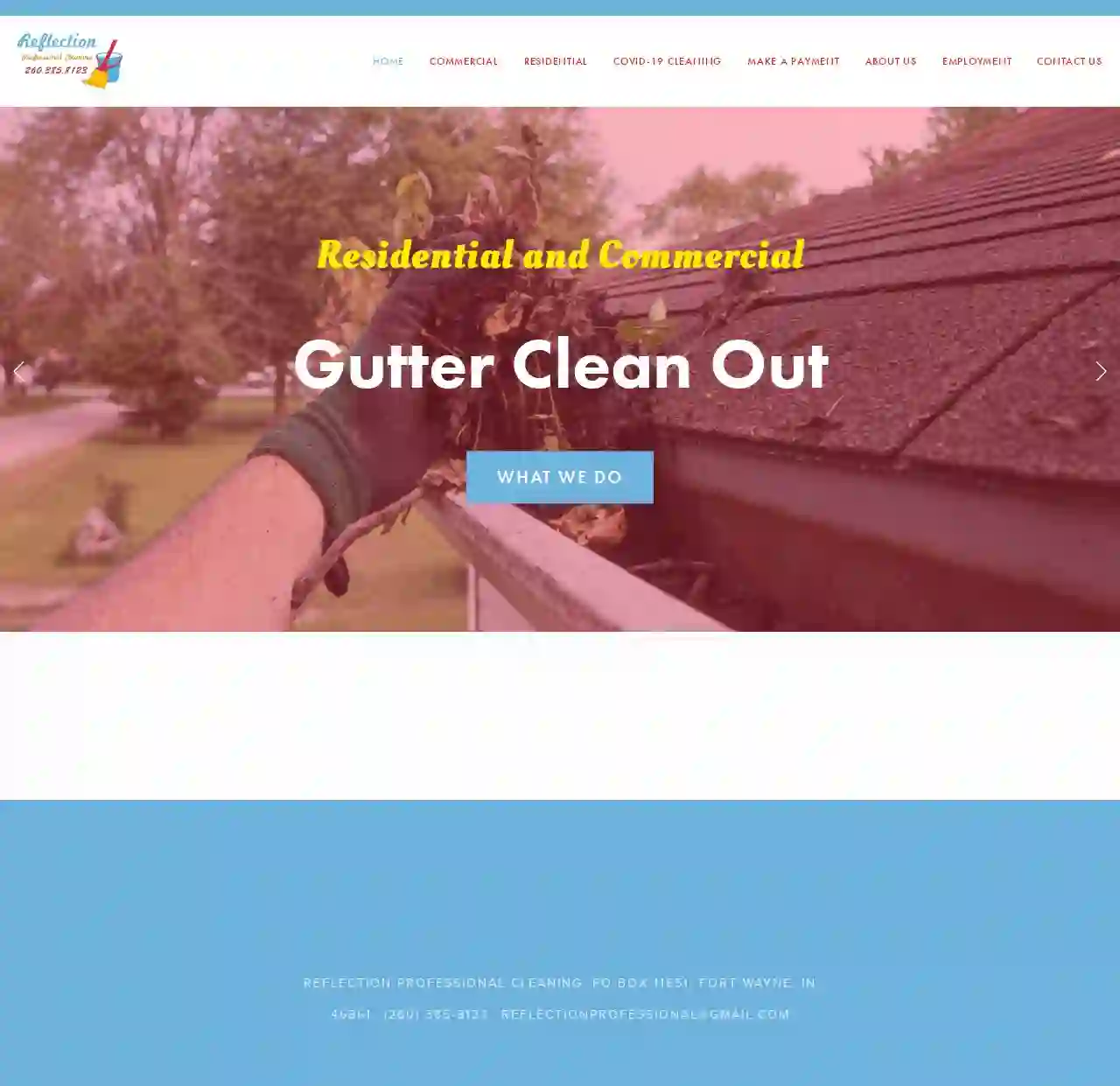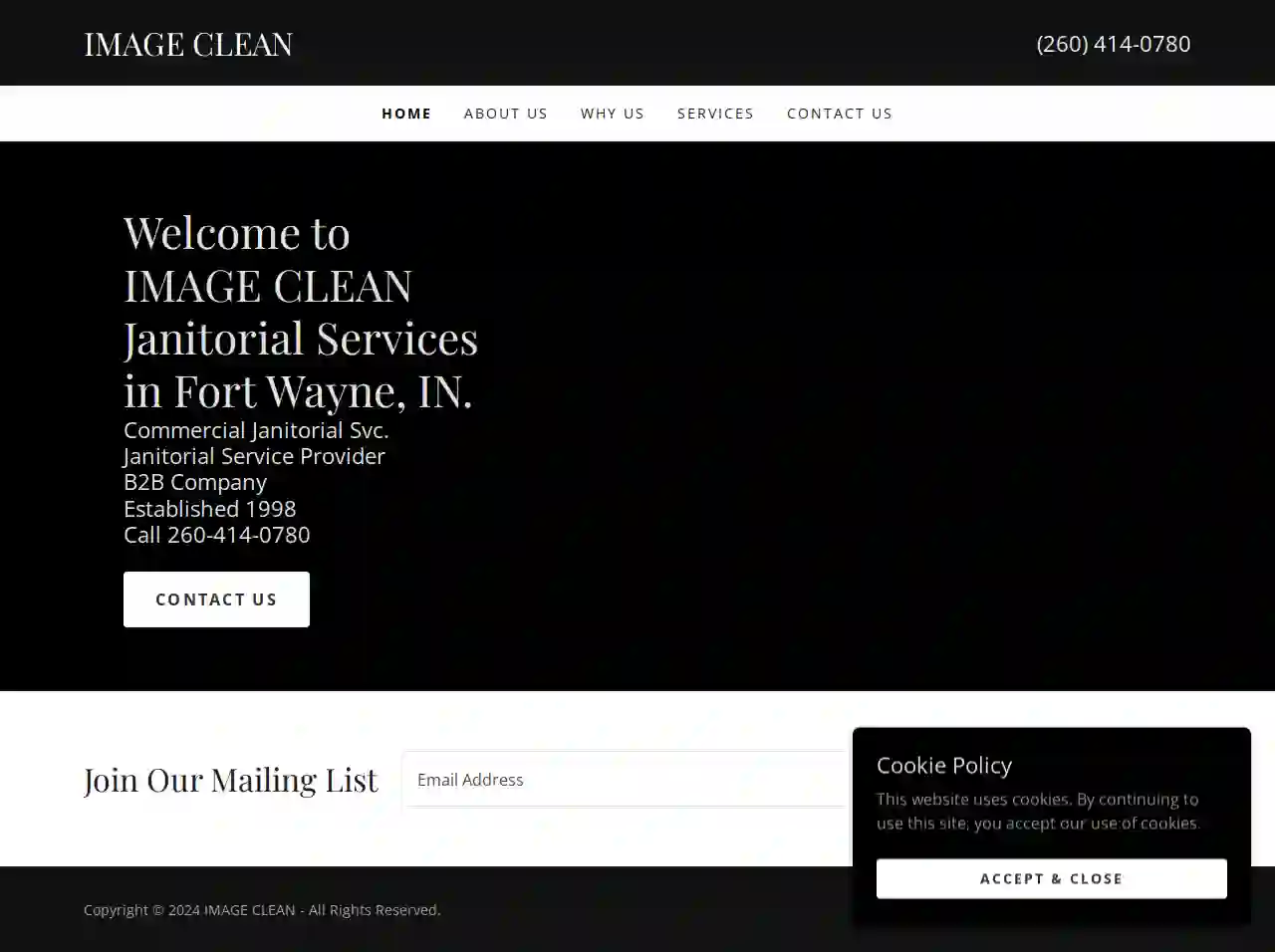Cleaning Services Ocean
Top 10 Residential Cleaning in Ocean
Receive 3 FREE Local Cleaners quotes for your project today! Compare profiles, reviews, accreditations, portfolio, etc... and choose the best offer.

PurICE Machine Cleaning
52 reviewsWayne, USAt PurICE Machine Cleaning, we specialize in professional ice machine cleaning services. Our team is dedicated to providing top-notch cleaning solutions to ensure your ice machine is running efficiently and producing clean ice. With our comprehensive cleaning process, we eliminate mold, bacteria, and scale, giving you peace of mind and helping you maintain a safe and healthy environment for your customers. Our cleaning process involves a full breakdown of the machine to sanitize and descale all components. We take before and after pictures upon request for your records. By choosing our services, you can become PurICE Certified, which not only ensures your ice machine is clean but also provides your customers with confidence in the quality of your products. Regular ice machine maintenance is essential to prevent breakdowns and costly repairs. Our flat pricing covers everything, and we offer scheduled cleanings to keep your ice machine mold-free. We take care of our customers, and our goal is to provide you with the best possible service.
- Services
- Why Us?
- Accreditations
- Our Team
- Testimonials
- Gallery
Get Quote
A&D Cleaning Service Inc.
510 reviewsTrenton, US- Services
- Why Us?
- Gallery
Get Quote
Reliable Cleaning Service
3.640 reviewsWayne, US- Services
- Why Us?
- Gallery
Get Quote
The Janitors Supply Co. Inc
4.822 reviewsWayne, US- Services
- Why Us?
- Gallery
Get Quote
Home & Office Cleaning Services - HNO Cleaning Services
520 reviewsTrenton, US- Services
- Why Us?
- Gallery
Get Quote
Olimpic Maids | Jersey City Clean
4.943 reviewsJersey City, US- Services
- Why Us?
- Gallery
Get Quote
Maids a la Carte
549 reviewsJersey City, US- Services
- Why Us?
- Gallery
Get Quote
Reflection Professional Cleaning
513 reviewsFort Wayne, IN, PO Box 11851, 46861, USReflection Professional Cleaning is a dedicated cleaning service provider offering a wide range of services including Janitorial Services, Carpet Cleaning, Pressure Washing, and Gutter Clean Out for both commercial and residential clients. With a strong focus on COVID-19 Delta Variant Cleaning, the company ensures the safety and cleanliness of all spaces. Their team is experienced and dedicated to providing top-notch services.
- Services
- Why Us?
- Accreditations
- Our Team
- Testimonials
- Gallery
Get Quote
IMAGE CLEAN
52 reviewsWayne, US- Services
- Why Us?
- Gallery
Get Quote- An
Angi Cheap handyman
4.97 reviewsPaterson, US- Services
- Why Us?
Get Quote
Over 60,241+ Janitorial Contractors on our platform
Our cleaning pros operate in Ocean and beyond!
CleaningMatch has curated and vetted Top Janitorial Contractors in and around Ocean. Find a trustworthy pro today.
Frequently Asked Questions About Cleaning Services
- Clean Pet Bedding: Wash pet bedding regularly in hot water to remove odors and bacteria.
- Vacuum Thoroughly: Vacuum carpets, rugs, and upholstery frequently using a vacuum cleaner with a pet hair attachment.
- Enzyme Cleaners: Use enzyme cleaners specifically designed for pet odors. These cleaners break down the odor-causing molecules.
- Baking Soda: Sprinkle baking soda on carpets and upholstery, let it sit for a few hours, then vacuum. Baking soda absorbs odors.
- Air Fresheners: Use air fresheners or diffusers to mask odors temporarily.
- Professional Cleaning: For persistent odors, consider hiring a professional cleaning service specializing in pet odor removal.
- Regular Sweeping or Dust Mopping: Sweep or dust mop hardwood floors daily to remove dust, dirt, and debris.
- Vacuuming: Vacuum hardwood floors weekly using a vacuum cleaner with a hardwood floor attachment to avoid scratches.
- Damp Mopping: Damp mop hardwood floors with a hardwood floor cleaner as needed. Avoid excessive water, as it can damage the wood.
- Prevent Scratches: Place felt pads under furniture legs to prevent scratches. Avoid dragging heavy objects across the floor.
- Avoid Harsh Cleaners: Do not use harsh chemicals, abrasive cleaners, or furniture polish on hardwood floors.
- Professional Cleaning: Consider hiring a professional hardwood floor cleaning service for deep cleaning and refinishing as needed.
- Regular dusting: Dust frequently using microfiber cloths or a duster. Pay attention to surfaces that attract dust, such as shelves, electronics, and furniture.
- Vacuuming: Vacuum carpets and rugs regularly using a vacuum cleaner with a HEPA filter to trap dust mites and allergens.
- Air Purifier: Consider using an air purifier to remove dust particles and allergens from the air.
- Reduce Clutter: Clutter provides more surfaces for dust to settle. Declutter regularly to minimize dust traps.
- Window Treatments: Wash or vacuum window treatments, such as curtains or blinds, regularly to remove dust buildup.
- Bedding: Wash bedding, including sheets, pillowcases, and blankets, weekly in hot water to remove dust mites.
- Doormats: Place doormats at entrances to trap dirt and dust from shoes before they enter your home.
Do I need to provide cleaning supplies for the cleaning service?
If you have specific preferences for cleaning products, such as eco-friendly or hypoallergenic options, communicate those to the cleaning service. They may accommodate your requests or allow you to provide your preferred supplies.
How do I get rid of pet odors in my home?
Regular cleaning, enzyme cleaners, and baking soda are effective methods for eliminating pet odors and maintaining a fresh-smelling home.
What are some tips for cleaning hardwood floors?
By following these tips, you can keep your hardwood floors looking beautiful for years to come.
How do I prevent dust from accumulating in my home?
By implementing these preventive measures, you can significantly reduce dust accumulation and maintain a cleaner and healthier home.
Do I need to provide cleaning supplies for the cleaning service?
If you have specific preferences for cleaning products, such as eco-friendly or hypoallergenic options, communicate those to the cleaning service. They may accommodate your requests or allow you to provide your preferred supplies.
How do I get rid of pet odors in my home?
- Clean Pet Bedding: Wash pet bedding regularly in hot water to remove odors and bacteria.
- Vacuum Thoroughly: Vacuum carpets, rugs, and upholstery frequently using a vacuum cleaner with a pet hair attachment.
- Enzyme Cleaners: Use enzyme cleaners specifically designed for pet odors. These cleaners break down the odor-causing molecules.
- Baking Soda: Sprinkle baking soda on carpets and upholstery, let it sit for a few hours, then vacuum. Baking soda absorbs odors.
- Air Fresheners: Use air fresheners or diffusers to mask odors temporarily.
- Professional Cleaning: For persistent odors, consider hiring a professional cleaning service specializing in pet odor removal.
Regular cleaning, enzyme cleaners, and baking soda are effective methods for eliminating pet odors and maintaining a fresh-smelling home.
What are some tips for cleaning hardwood floors?
- Regular Sweeping or Dust Mopping: Sweep or dust mop hardwood floors daily to remove dust, dirt, and debris.
- Vacuuming: Vacuum hardwood floors weekly using a vacuum cleaner with a hardwood floor attachment to avoid scratches.
- Damp Mopping: Damp mop hardwood floors with a hardwood floor cleaner as needed. Avoid excessive water, as it can damage the wood.
- Prevent Scratches: Place felt pads under furniture legs to prevent scratches. Avoid dragging heavy objects across the floor.
- Avoid Harsh Cleaners: Do not use harsh chemicals, abrasive cleaners, or furniture polish on hardwood floors.
- Professional Cleaning: Consider hiring a professional hardwood floor cleaning service for deep cleaning and refinishing as needed.
By following these tips, you can keep your hardwood floors looking beautiful for years to come.
How do I prevent dust from accumulating in my home?
- Regular dusting: Dust frequently using microfiber cloths or a duster. Pay attention to surfaces that attract dust, such as shelves, electronics, and furniture.
- Vacuuming: Vacuum carpets and rugs regularly using a vacuum cleaner with a HEPA filter to trap dust mites and allergens.
- Air Purifier: Consider using an air purifier to remove dust particles and allergens from the air.
- Reduce Clutter: Clutter provides more surfaces for dust to settle. Declutter regularly to minimize dust traps.
- Window Treatments: Wash or vacuum window treatments, such as curtains or blinds, regularly to remove dust buildup.
- Bedding: Wash bedding, including sheets, pillowcases, and blankets, weekly in hot water to remove dust mites.
- Doormats: Place doormats at entrances to trap dirt and dust from shoes before they enter your home.
By implementing these preventive measures, you can significantly reduce dust accumulation and maintain a cleaner and healthier home.